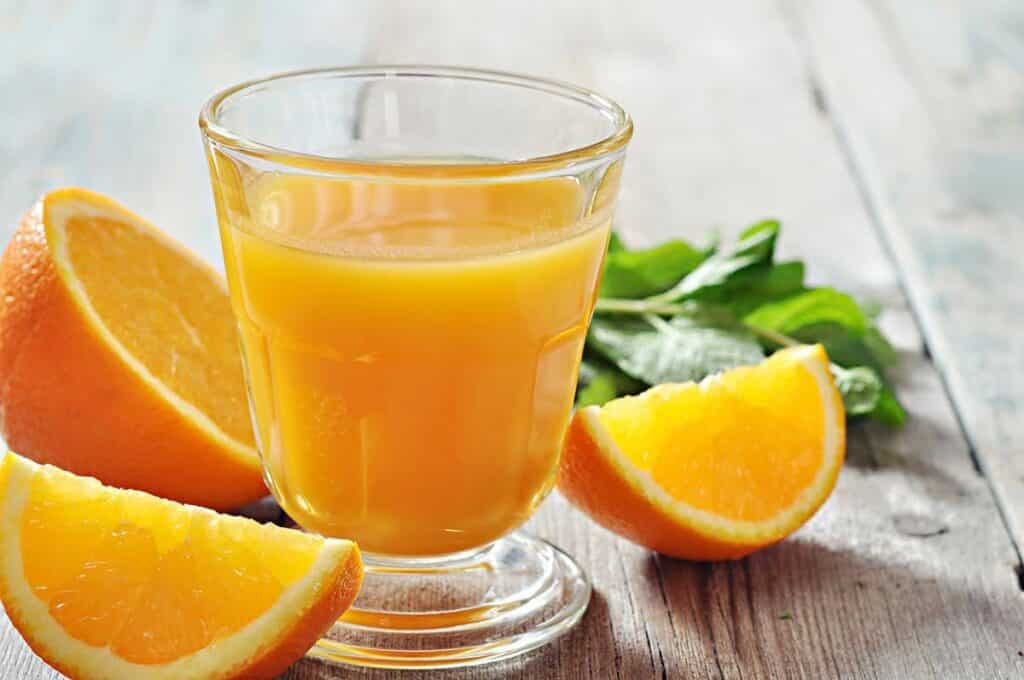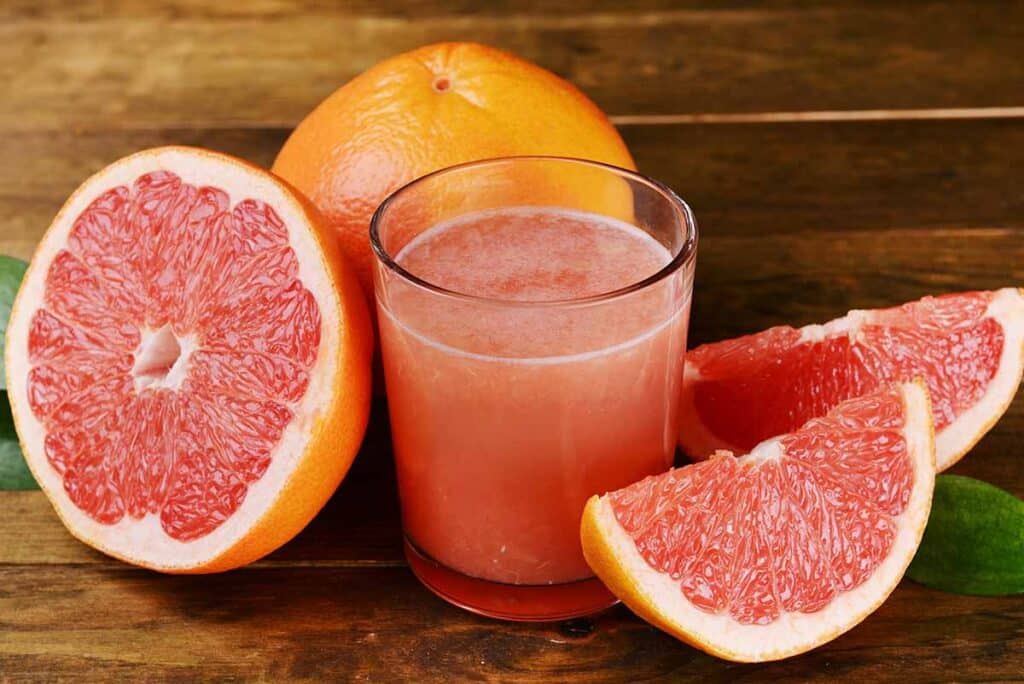Lemon juice is such a nutritious and abundant ingredient. You’d never think that you’d ever need a lemon juice substitute.
However, you’d be surprised to learn that there are several reasons to swap this for another food item.
This article will explain why you’ll need an alternative and the viable options you can use. Read on to discover more.
Jump to Recipe
Lemon juice indeed has numerous health benefits. But this fruit doesn’t come without disadvantages.
For instance, one of the reasons why you’d need a substitute for lemon juice is a citrus allergy.
Certain people are not able to consume anything citrus, including lemon.
Second, lemon juice is highly acidic. Some people are advised against having it.
Third, not all people love the lemon flavor.
Fourth and last, you may be in such a hurry that running to the store is not an option. With all these reasons, you may need an alternative to lemon juice to carry on with your recipe.
So, what is a substitute for lemon juice? Surprisingly, there are plenty; some might already be sitting in your pantry.
Here are our top substitutes for lemon juice:
The best and closest substitute for lemon juice is lime juice.
It shares the same acidity and flavor as lemon juice, with lime juice being just the tiniest bit sweeter.
With that, it can easily add that zing to your recipes in place of lemon juice.
Tip:
Use a 1:1 ratio to substitute lime juice for lemon juice in your dishes.

If you find lemon or lime juice too sour and acidic, a similar citrus juice might be your best bet.
In that case, you can use orange juice as a substitute for lemon juice.
Take note, though, that orange juice is significantly sweeter. It may only work in some, but not all, recipes.
Tip:
Use an equal amount of orange juice to replace lemon juice.
Citric acid is an organic compound you can find in lemon juice. It is what makes lemons taste sour and tart.
This substitute is available in powder form. It will, of course, lack the fruity notes.
Plus, you’d have to alter your recipe to account for its powdered form.
Tip:
It can be used as a direct substitute for lemon juice by dissolving it in water according to the recipe’s requirements. Start with a small amount and adjust to taste.
When considering what to substitute for lemon juice, you don’t always have to stray away from the fruit.
The outer layer of fresh lemons, the zest, can work for some recipes. This is especially true for those dishes that need the lemon flavor minus the sourness.
Yet again, you must increase the amount of liquid ingredients in your recipe when using this. This is important, especially in baked goods where proportions significantly matter.
Tip:
Trust your taste buds with this alternative. Use as much or as little, depending on your preference.

Just like lemon zest, lemon extract gives you the lemon flavor and aroma without the acidity. For this reason, it can be an alternative to lemon juice, too.
You must remember, though, that this extract has a highly concentrated lemon flavor.
Just the same, be prepared to adjust your other liquid ingredients.
Tip:
Don’t use a 1:1 substitution ratio. Start with a drop and add more if necessary.

Grapefruit juice is also one of the best lemon juice swaps. This is because it has a similar acidic taste.
Though it will have a citrusy flavor, remember that it does not taste like lemons.
For this reason, you should not use grapefruit juice in dishes where lemon is the main ingredient.
Tip:
Replace lemon juice with an equal amount of grapefruit juice. Keep in mind that they may impart slightly different flavors to the dish.
Cream of tartar is a good lemon juice substitute in baked goods.
It reacts the same way as lemon juice when combined with baking soda. It can also make your cakes rise!
That’s the only thing it is suitable for, though. It will not give you that lemon flavor or that citrus tang you’d expect from lemon juice. Nevertheless, it can save you from a baking disaster.
Tip:
Mix 1 teaspoon of cream of tartar with 2 teaspoons of water to replace 1 tablespoon of lemon juice.
White wine can be used as a substitute for lemon juice in certain recipes.
While it won’t provide the same acidity as lemon juice, white wine can add a pleasant depth of flavor and tanginess to dishes.
Choose a dry white wine to avoid having an overly sweet dish. Pinot Grigio and Sauvignon Blanc are our top recommendations.
Keep in mind that white wine contains alcohol, which may not be suitable for everyone or certain dishes.
Tip:
Since white wine lacks a lemony flavor, you should not use it in recipes where lemon is the key ingredient. Use half the amount of white wine as you would lemon juice.
You can also use vinegar as a lemon juice substitute in a pinch. After all, it has that same acidic taste. But that is where their similarity ends.
Various types of vinegar, such as white vinegar, apple cider vinegar, or white wine vinegar, can be used as a substitute for lemon juice.
However, vinegar is more acidic and does not have the citrus flavor and aroma of lemon juice.
You may need to use less and adjust the taste accordingly.
Tip:
Note that vinegar can be overpowering, so use just half the amount of lemon juice in your recipe. For apple cider vinegar, a 1:1 substitution ratio will work.
This substitute works well in recipes such as cakes, muffins, or pancakes.
The yogurt or buttermilk will add moisture and a slight tang to the final product.
Keep in mind that the flavor profile will change, so consider whether the substitution will complement the other ingredients.
Tip:
You can substitute it with an equal amount of plain yogurt or buttermilk for a creamy and tangy result.
You can use pineapple juice as a substitute for lemon juice in certain recipes.
It’s important to note that pineapple juice has a distinct flavor that will impart a sweet and tropical taste to your dish, which may not always be desirable or suitable as a direct replacement for lemon juice.
Additionally, pineapple juice can add a tangy and sweet element to fruit-based dishes, beverages, and certain desserts.
Tip:
Pineapple juice contains natural enzymes, such as bromelain, which can tenderize meat. It is commonly used in marinades for this purpose.
Lemon juice is a versatile ingredient that can be used in a variety of ways.
Here are some common uses of lemon juice.
Lemon juice can add a bright and tangy flavor to both savory and sweet dishes.
It works well in salad dressings, marinades, sauces, and soups.
In baking, lemon juice can be used to enhance the flavor of cakes, cookies, pies, and other desserts.
Lemon juice can be used to make refreshing beverages.
Squeeze fresh lemon juice into water to make lemonade, or add it to hot or cold tea for a citrusy twist.
Lemon juice is also a common ingredient in cocktails, such as the classic lemon drop martini or a refreshing mojito.
The acidity of lemon juice helps prevent fruits and vegetables from browning or oxidizing.
You can use lemon juice to preserve sliced apples, avocados, or other produce that tends to brown when exposed to air.
Lemon juice can be combined with olive oil, herbs, and spices to create simple and flavorful salad dressings.
It also works as an excellent ingredient in marinades to tenderize the meat and add a zesty flavor.
Lemon juice is a popular ingredient in salad dressings and vinaigrettes. It’s also called for in cakes, cookies, and meringue. Lemon juice is also popular in chicken dishes and seafood recipes.
Freshly-squeezed lemon juice can last for 3 days when stored in the fridge. When you freeze it, lemon juice can last up to 4 months.
You can freeze lemon juice to extend its shelf life. Freezing lemon juice is a convenient way to preserve it for future use. You can use ice cube trays, small plastic containers, or even freezer-safe bags. Pour the measured lemon juice into the chosen containers, leaving a small space at the top to allow for expansion during freezing.
You can surely find a lemon juice substitute no matter your reason for looking for one. Lime juice is the best and closest one you can use. If this does not work for you, go for orange or grapefruit juice.
Lemon zest, citric acid, and vinegar can also work for some dishes. Non-conventional options include celery juice, cream of tartar, and lemon verbena.






